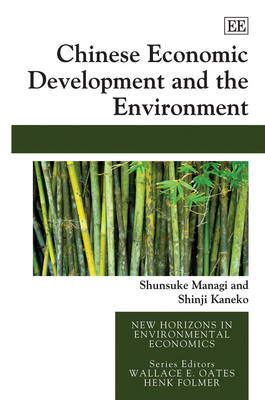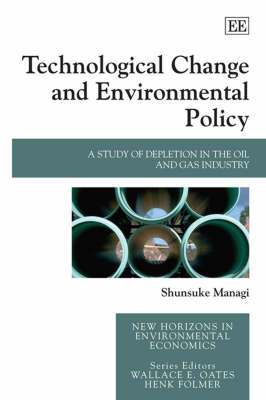New Horizons in Environmental Economics
4 total works
Technology, Natural Resources and Economic Growth
by S Managi and Shunsuke Managi
Shunsuke Managi takes a distinctive approach by focusing on the design and implementation of environmental regulations that encourage technological progress and, in doing so, looks at ways to ensure productivity improvements in the face of increasingly stringent environmental regulations and natural resource depletion. The findings in this important book demonstrate how successful environmental policies can contribute to efficiency by encouraging, rather than inhibiting, technological innovation.
Technology, Natural Resources and Economic Growth will provide a valuable resource for a wide readership including postgraduate students, researchers, academics and policy makers working in the fields of environmental and ecological economics.
Technology, Natural Resources and Economic Growth: Improving the Environment for a Greener Future
by Shunsuke Managi
Chinese Economic Development and the Environment
by Shunsuke Managi and Shinji Kaneko
Chinese Economic Development and the Environment measures productivity, taking into account energy resources and environmental attributes that are central to sustaining economies. Applying an integrated model of energy production, transformation and consumption processes, the authors investigate the underlying driving forces behind trends in CO2 emissions in relation to the total primary energy supply.
Exploring the history and development of China's economic, energy and environmental policy, this book will strongly appeal to postgraduate students in economics and environmental studies. It will also be beneficial for practitioners and policy-makers interested in understanding how successful market and environmental policies can contribute to efficiency by encouraging, rather than inhibiting, technological innovation.
It identifies and measures the impact of technological change, both in market and environmental output sectors and takes steps to identify key causal relationships. The author focuses on the design and implementation of environmental policies that encourage technological progress in the face of the depletion of natural resources and the increasing stringency of environmental regulations. Detailed policy scenarios provide quantitative assessments indicating the significance of the potential benefits of technological change and well-designed environmental policy.
With a sophisticated description of innovations within the oil and gas industry, this book will be of great interest to postgraduate students in economics, as well as in public policy, business administration and engineering. It will also appeal to practitioners in the energy industry and energy and environmental policymakers as it demonstrates how successful market and environmental policies can contribute to efficiency by encouraging, rather than inhibiting, technological innovation.


